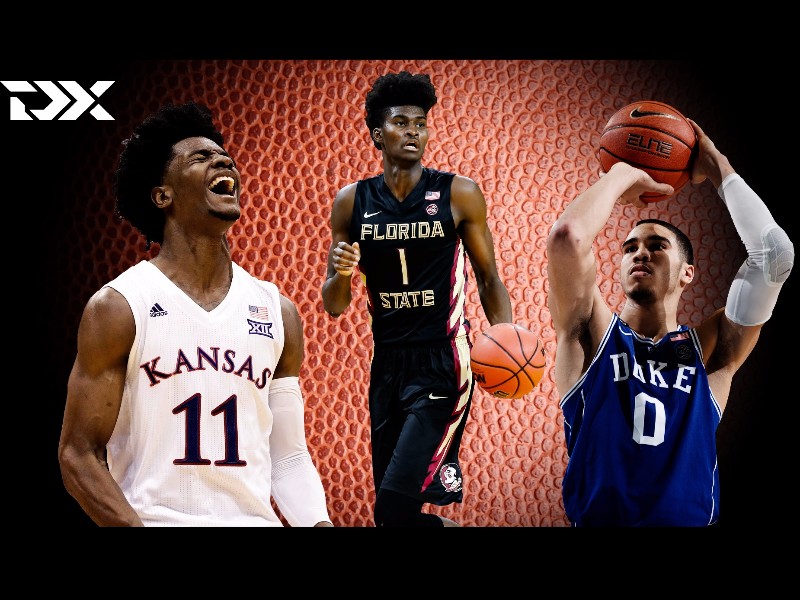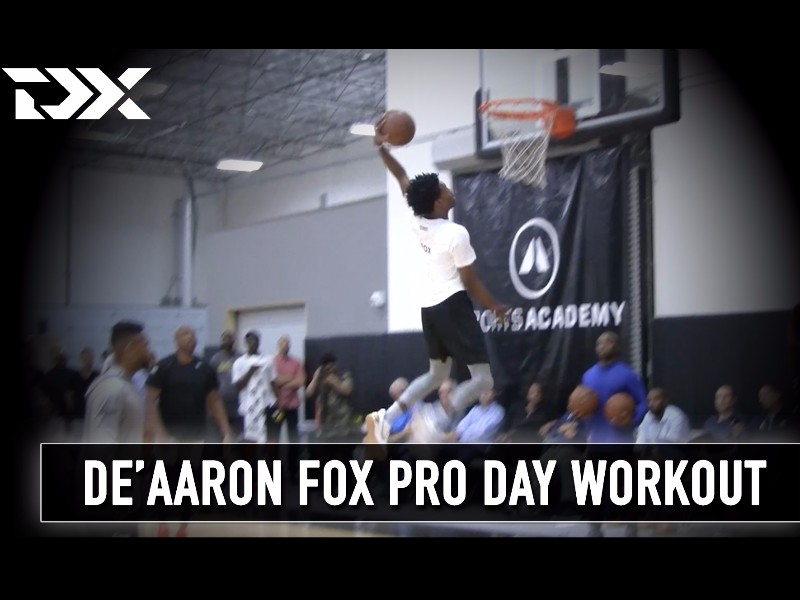Maurice Evans Interview, Part One
Eric Weiss Well, youve certainly found your niche in terms of having the opportunity to build out a role for yourself with the team. I was hoping youd talk a little more about finding opportunity in the NBA. How tough is it to stay on top of your game when youre still waiting your turn?
Mo Evans Its an extremely difficult situation. Every year youve got young players coming in, some young player fresh out of college who is going to be given an opportunity more than likely, or Free Agents coming in. Teams are ever changing and everyone is always trying to upgrade and get the most efficient five on the floor.
Ive been waiting my turn since I came into the NBA. This is my sixth year so Im at the point now where Im ready to do something, to be counted on. Im always trying to push the envelope and show everyone that Im here and that Im ready.
Eric How much does success in this league just boil down to getting a chance for a lot of guys?
Mo Tiki Barber said it best when he said that opportunities are seldom perfect. In his commercial he talked about how he wasnt a starter and then one day when the starter got hurt he went in and had a really big day and ended up starting since that day. Ive had opportunities like that. For example, Kobe didnt play all of preseason so I ended up starting all of preseason. He didnt start the first few games of the regular season, so I ended up starting and getting off to a really nice start. I got to do it on national television and heard people saying that I was a survivor and had some skill, but Ive been here all along.
Youve got to stay ready and take advantage of opportunity when it presents itself. No one's going to feel sorry for you if you go out there and you dont produce. Another thing is that people have short memories in this league. You play so many games, you can come out one night and be on point and then come out the next night and not be on top of your game. The opportunity can be gone as quickly as it was given. Youve got to stay sharp.
Eric It really is that thin sometimes, circumstantial. Kobe was out and you got a chance to do something. Its still you. Youre still Maurice Evans, but Maurice Evans in this situation gets to be where youre at now and Maurice Evans in a situation where Kobe isnt hurt and coming off of surgery
who knows?
Mo Exactly.
Eric Staying with that; do you think that the NBA may be geared a little too much toward superstar potential and big time performers and maybe not as good at developing role players, guys also essential at building a championship team? As you said, theres always a look to upgrade, but every championship team has great complementary players. It seems as if they just materialize, most of the complementary players on other teams have spent time on many teams.
Mo I dont think it's as difficult for a guy whos hand-picked to be successful in this league because they get a lot of opportunity. Im not saying its easy in a sense where people arent going to try and impose their will on them, check their stats, and make them earn anything. But for example, I dont think every superstar could be as productive if they had to play the role of a role player, had to be productive in spot minutes with less touches and things of that nature.
I think it is important. I think that people sometimes will overlook having guys that are role players and complementary players. Say for example youre averaging 8 or 9 points per game, that guy can be just as important if hes coming off the bench and being consistent every night, playing defense, and staying involved. Thats not to say that the starters arent important at all, but the chemistry of the team is whats most important. Teams like Phoenix and Dallas, San Antonio [have that.] Bruce Bowen is an efficient part of San Antonios team. Hes most likely only going to stand in the corner and shoot corner threes, but that role is important. When Duncan, Ginobili, and guys like that are cheated on, the team needs a guy thats going to be able to knock down those shots.
My whole point of saying that was a lot of teams will reward guys who are on bad teams that arent making the playoffs, but guys will go out there and put up numbers because theyre getting to play. Theyre not playing for anything, but theyre out there averaging 15-16 points and then they get 40 or 50 million thrown at them. When they get there theyre not productive because theyve got to fit into a certain role and there is already a superstar there and theyve got to find a way to fit in around him.
Eric It seems somewhat similar to college players coming into the NBA. It must be a very difficult adjustment when youre used to being a feature player where things are built around you and then figuring out how to readjust to a system where you are trying to fit into a system built around somebody else.
Mo Thats exactly right.
Eric I think from our perspective, the viewers perspective, its a star-driven league and thats good because it makes it successful. But understanding how difficult it is to adjust and build a team where everyone knows their roles. Everyone can do more than theyre asked to do to an extent. It might not be as efficient, but for the most part, role players are doing less than their full capability. Its about sacrificing and understanding what you do best in order to work together in a group.
Mo Exactly.
Eric Talk about communication on the NBA level. For a player whos not always on the court or looking to get his opportunity, how much communication is there between coach a player? Can you walk into Phil Jacksons office and talk with him about what you need to do to become a better player?
Mo You can always seek advice from head coaches, but I think communication between players and coaches is overrated in the NBA. A lot of coaches expect you to be a pro and show professionalism on and off the court. They expect you to pretty much know how to execute and carry out what they want. Theyre not going to baby you for long, theyll tell you once or twice at the most and then expect you to pick it up. Its not like it was in college where the coach would kind of coax you along. Its not the same.
Eric Where do you find the time to put in the extra work to improve during the regular season? Where is the time to put up extra shots or study game film, whatever it is you have to do to improve if youre not getting on the court?
Mo I think thats one thing that teams do a really good job at, especially here in LA. We have shoot-around pretty much every game day. We get to the gym, watch film on how the other team is going to play and their personnel. Then well walk through specific plays that were going to want to use on a given night. Then well take a break and get lunch or a quick nap and its back to the gym and on again. The coaches are great at working with the players, getting shots up, or doing whatever it is we need to work on in terms of skill development. We then watch player personnel again and go through the plays on the board again. Then its off to play the game. Since you do it so many times, day after day, you get into a rhythm and thats when you really start to see the improvement.
Eric Ive got to imagine that its a two-way street though; a player has to attack it with a purpose.
Mo Definitely. I think that different people take different approaches. You see that certain players are more successful at it than others.
Eric Youre in the prime of your career. Going forward, what goals and aspirations do you have for the rest of your career?
Mo Of course the ultimate goal is to win an NBA championship. Ive been on a playoff contending team each and every year and have been fortunate to do so. Ive been fortunate enough to never have a losing season and I want to continue to learn from the great players Ive been fortunate enough to play with. I want to continue to add to my game and continue to impact the games for the team that I play for and eventually be looked at as a role player that can knock down the open shot, be relied on to box-out play in-your-face defense, those types of things. If I can continue to impact my team in that way and add to it then I can look back at the end of my career and be content with that.
Eric Thanks a lot Maurice, this has been a really good interview. If youve ever got more insight youd like to contribute, DraftExpress is always open for you to do so. I think weve learned a lot.
Mo I appreciate that. Thanks for the opportunity to speak over the past few years. Take care.
Maurice Evans' Journey: Part Two
Feb 08, 2007, 02:23 pm
Read Next...
-
Comparing and Contrasting the Prospects of Tatum, Jackson and Isaac
Jun 21, 2017, 02:52 pmIn a draft class lauded for its guards, three exceptionally talented, and wildly different, forward prospects sit in the top six of our mock draft, each taking a very different path to the top, and demonstrating wildly contrasting strengths and weaknesses. So who is the best prospect among the three? -
De'Aaron Fox Catalyst Sports Pro Day Workout
Jun 21, 2017, 10:49 amVideo from the De'Aaron Fox Catalyst Sports Pro Day Workout in Los Angeles. Video produced by Matt McGann.
Recent articles
4.9
Points
1.0
Rebounds
0.4
Assists
9.0
PER
2.7
Points
1.8
Rebounds
0.5
Assists
5.3
PER



























Comments